MS-LS1-8
Gather and synthesize information that sensory receptors respond to stimuli by sending messages to the brain for immediate behavior or storage as memories.
-
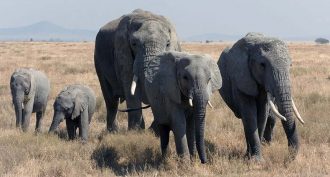 Animals
AnimalsElephants appear to be super sniffers
Elephants are not only massive, but also possess the most odor-detecting genes of any animal known, new research shows.
By Nsikan Akpan -
 Genetics
GeneticsOwww! The science of pain
No one likes pain, but it keeps us alive. That’s why scientists want to learn how best to coexist with this complicated and still somewhat mysterious sensation.
By Kirsten Weir -
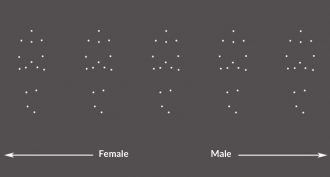 Brain
BrainThe scent of a woman — or a man
Animals unwittingly signal things about themselves by giving off subtle scents. A new study claims the same is true for people.
-
 Brain
BrainGhosts in your head
Many people see, feel and hear things that aren’t really there — despite how much their brain tries to convince them otherwise.
By Kirsten Weir -
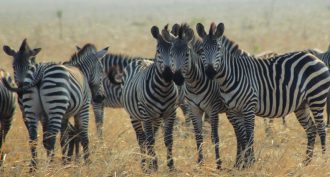 Animals
AnimalsOne plus to wearing stripes
A zebra’s black-and-white coat doesn’t offer cooling or camouflage, researchers find. Instead, its stripes appear to keep away biting flies — and deadly diseases.
-
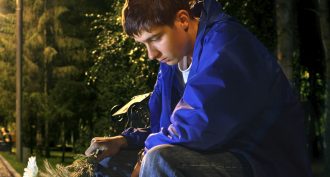 Brain
BrainLoneliness can breed disease
Everyone experiences loneliness from time to time. But when allowed to persist, loneliness can damage your health and steal years from your life.
By Hugh Westrup -
 Health & Medicine
Health & MedicineThe nose knows a trillion scents
There's a long-standing claim that people can identify 10,000 different odors. But a new study suggests that people can actually identify at least 10,000 times that many scents.
-
 Brain
BrainUnderstanding Autism
Genetics appears to play some role in this disorder, which affects more than one percent of all Americans.
By Bryn Nelson -
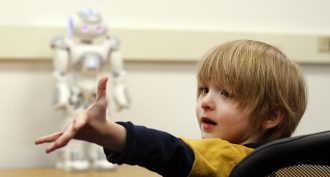 Brain
BrainGetting a head start on autism
Early diagnosis followed by early treatment may reduce autism’s impact on kids — and help them to communicate better.
By Bryn Nelson -
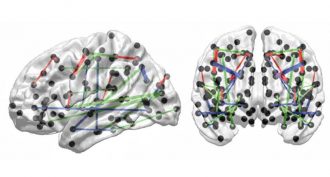 Brain
BrainMapping the brain’s highways
A new map may explain why some brain injuries are worse than others. Even relatively minor injuries that disrupt message superhighways may have a more devastating impact than some seemingly catastrophic injuries.
-
 Brain
BrainThe teenage brain
Adolescence triggers brain — and behavioral — changes that few kids or adults understand.
-
